Why Does Acid Reflux Get Worse at Night?
If you struggle with acid reflux, has lying down to sleep at night become more stressful than relaxing? You're not alone!
Many individuals experience worsening symptoms of acid reflux at night, leading to disrupted sleep and decreased quality of life. As a Registered Dietitian specializing in GERD/LPR, I want to teach you why these nighttime symptoms occur and provide evidence-based strategies to help you find relief.
Understanding Nocturnal Acid Reflux
Acid reflux, also known as gastroesophageal reflux disease (GERD), occurs when stomach acid flows back into the esophagus, causing irritation and discomfort. While reflux can happen at any time of the day, it often intensifies during the night due to several physiological factors:
Supine Position
When you lie down to sleep, gravity no longer helps keep stomach contents in place. This allows acid to travel more easily up the esophagus, leading to increased symptoms. When you have GERD/LPR your lower esophageal sphincter (LES), which keeps the acidic gastric juices in your stomach, does not close properly and makes one more susceptible to acid traveling up the esophagus. Therefore, without the help of gravity, all of the work depends on the LES function, which is why so many struggle with reflux symptoms at night!
Reduced Swallowing
During sleep, the frequency of swallowing decreases. Swallowing helps clear acid from the esophagus, so a reduction in swallowing can contribute to acid lingering in the esophagus for longer periods, exacerbating reflux symptoms.
Decreased Saliva Production
Saliva serves as a natural buffer against acid, helping to neutralize it and protect the esophageal lining. However, saliva production decreases during sleep, leaving the esophagus more susceptible to acid damage.
Strategies to Combat Nighttime Acid Reflux
While nighttime reflux symptoms can be scary, there are quick, evidenced-based ways to reduce nighttime reflux that you start today for relief!
Elevate Your Upper Body
Sleeping with your upper body elevated can help prevent acid from flowing back into the esophagus. Consider using a wedge pillow or raising the head of your bed by a few inches to create a slight incline. I recommend using Reflux Guard’s elevated beneath-the-bed pillow! Use code FLORA10 for 10% off.
Avoid Late-Night Eating
Consuming large meals or snacks close to bedtime can increase the likelihood of experiencing acid reflux at night. Aim to finish dinner at least two to three hours before lying down to allow for your food to be fully digested and have left your stomach.
Identify and Avoid Trigger Foods
Certain foods and beverages can trigger or exacerbate acid reflux symptoms. Start by reducing reflux-triggering foods and instead, opt for reflux-friendly food choices that can help reduce the inflammation of your esophagus lining! Keep a food diary to identify your personal triggers and minimize their consumption, especially in the evening.
Optimize Meal Timing and Composition
Focus on smaller, more frequent meals throughout the day to prevent overeating and minimize pressure on the lower esophageal sphincter (LES). Choose nutrient-dense foods that are less likely to provoke reflux, such as lean proteins, vegetables, whole grains, and healthy fats. My free three day meal plan has some great meal ideas that you can incorporate into your diet with confidence! Aiming to make breakfast or lunch your larger meals can go a long way in preventing nighttime reflux. Lastly, honoring 80% fullness at dinner is a major key in reflux prevention!
Practice Relaxation Techniques
Stress and anxiety can worsen acid reflux symptoms. Incorporate relaxation techniques such as deep breathing, meditation, or gentle yoga into your bedtime routine to promote relaxation and reduce nighttime reflux. The FLORA app has a plethora of guided meditations and yoga flows that have helped hundreds regulate their nervous system.
Take an Alginate Before Bed
Taking an alginate supplement like Reflux Raft can provide effective relief from nighttime acid reflux by forming a protective barrier on top of the stomach contents, preventing them from regurgitating into the esophagus while lying down. This unique mechanism helps reduce the frequency and severity of reflux episodes during sleep, allowing for a more restful night and improved overall digestive comfort. Incorporating Reflux Raft into your nighttime routine can offer peace of mind and support in managing acid reflux symptoms effectively. I recommend the RefluxRaft Midnight Berry for the added benefits of melatonin, which can help tone the Lower Esophageal Sphincter at night. Try RefluxRaft here.
Conclusion
Nighttime acid reflux can significantly impact your quality of life, leading to discomfort and sleep disturbances. By understanding the factors that contribute to nighttime reflux and implementing lifestyle modifications and dietary changes, you can take proactive steps to alleviate symptoms and improve sleep quality.
If you continue to experience persistent or severe acid reflux symptoms, despite implementing these strategies, working with a RD for further evaluation and personalized treatment would be recommended to get the support you need and finally begin to heal.
Living with acid reflux doesn't have to be a daily struggle. At FLORA Nutrition, we offer a comprehensive Acid Reflux Relief Program to help you achieve lasting relief through personalized nutrition guidance, lifestyle modifications, and stress management techniques.
FLORA includes:
One-on-one consultations with a registered dietitian: We'll create a customized meal plan tailored to your specific needs and triggers.
Support and accountability: Stay motivated and on track with regular check-ins and expert advice.
Stress management techniques: Learn how to manage stress, a major trigger for acid reflux, through mindfulness practices, and relaxation techniques.
Access to the FLORA App & FLORA App Community: FLORA is for anyone looking to improve their gut health and reduce stress. FLORA is specifically designed for those managing digestive dysfunction (such as acid reflux and IBS) and looking to heal their gut, repair their relationship with food, and optimize their health.
Apply today and take the first step towards a life free from acid reflux!
Personalized nutrition and lifestyle changes can be your powerful ally in the fight against acid reflux. You've got this!
Written by Molly Pelletier, MS, RD, LDN | Molly Pelletier is a Registered Dietitian specializing in acid reflux/GERD/LPR/IBS and a leading voice in nutrition for acid reflux. Molly's background in nutrition science and her personal health journey with GERD culminated in the curation of FLORA Nutrition, where she shares evidence-based tools and strategies to help others recover from reflux and optimize their overall well-being. Follow Molly on Social Media @mollypelletier.rd on all platforms | YouTube | Instagram | TikTok | Pinterest |
Blog co-created with FLORA Team Member & MS Nutrition, Jacqueline Gilpin
1. Kahrilas PJ, Shaheen NJ, Vaezi MF, et al. American Gastroenterological Association Institute Technical Review on the Management of Gastroesophageal Reflux Disease. Gastroenterology. 2008;135(4):1392-1413.
2. Dent J, Holloway RH, Toouli J, Dodds WJ. Mechanisms of lower oesophageal sphincter incompetence in patients with symptomatic gastrooesophageal reflux. Gut. 1988;29(8):1020-1028.
3. Fass R, Quan SF, O'Connor GT, et al. Predictors of heartburn during sleep in a large prospective cohort study. Chest. 2005;127(5):1658-1666.








